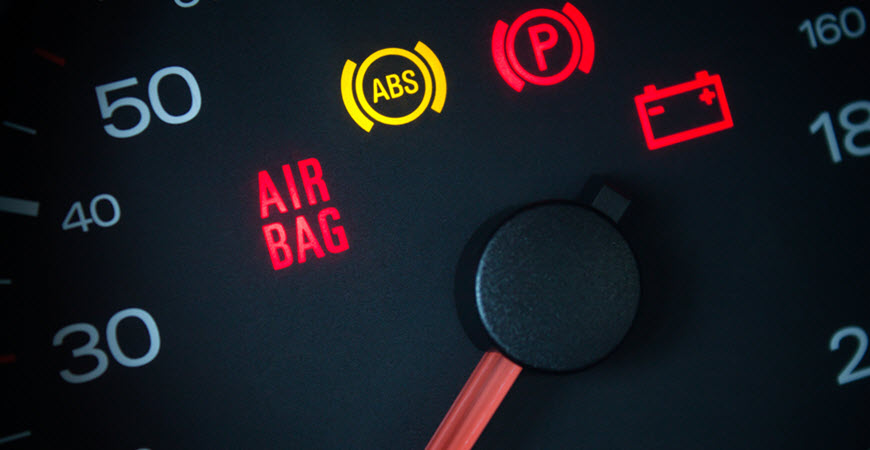Modern vehicles are certainly something to marvel about. The auto industry at large has come a long way in past decades, especially manufacturers like Volkswagen who consistently push their standards to the limit and expand on their continually-evolving designs. A component of vehicle designs in general these days includes what are called “modules,” which is a fancy name for computers that perform specific functions. Various systems in your vehicle are responsible for certain tasks, such as the anti-lock brake system (ABS) which, as the name implies, helps to regulate and control your car’s braking system. If you drive a Volkswagen, then you might have a slightly higher risk of running into ABS module issues over time.
The ABS module, along with other modules in your vehicle, are essential for your Volkswagen’s performance, and without them your car won’t be able to function appropriately. It is helpful to have a frame of reference when determining if your own Volkswagen suffers from ABS module failure so that you can get your car the care it requires to ensure your safety. In this article, we’ll go over some basic information about the ABS module and how you can deal with failure should it occur in your VW.
What does the ABS module do exactly?
Anti-lock brakes come in most stock vehicles that are made these days, as the standards of vehicle design and engineering have evolved over time to better protect drivers and enhance the driving experience for safety as well as performance. The ABS system helps to control your brake application and responsiveness when braking abruptly. However, it’s important to consider how the ABS module utilizes data and aid from other systems in your vehicle.
The ABS module is complex in that it communicates with other modules in order to function adequately. For instance, the TCS (traction control system) module works closely with the ABS module to enhance the precision of your Volkswagen’s anti-lock braking function – especially under adverse weather conditions. With data and input coming from wheel sensors, the ABS module incorporates this information to even further narrow the window of brake effectiveness. Since the ABS module performs specific, yet complex functions, it’s best to have an automotive shop that specializes in Volkswagen cars handle any issues that may come up.
How to tell if your ABS module is failing
As with any other concerning vehicular conditions, it’s important to pay attention to how your car is behaving on a daily basis so that you can catch any ABS module issues early-on, before your safety is at risk. Here are some symptoms of ABS module issues that you should have assessed immediately if you encounter them.
ABS dashboard warning
As we mentioned at the start of this article, vehicles these days are pretty marvelous; they can detect and alert us when there is a performance issue, helping to save drivers and mechanics the trouble of an exhausting trial-and-error process of isolating the source of an electrical or mechanical issue. If the ABS module encounters a malfunction of some kind, the ABS dashboard warning symbol will likely illuminate. This is extremely helpful for diagnostic purposes.
Differences in brake precision
If you begin to notice that your brakes aren’t working quite as well as they once did, there could certainly be an array of reasons why this is so – particularly if your brakes haven’t been serviced in some time. However, if the module can’t accurately implement the information it’s given from other modules and sensors, your brakes may behave oddly. This symptom should not go overlooked for any extended period of time.
The feel of the brake pedal changes
Your brakes are a pressurized system that is implemented when the driver applies force to the brake pedal. If the brake pedal is no longer as responsive as it once was, or it feels different when you press down the pedal (e.g. the pedal is too easily pressed to the floor), then the issue could be related to a failing ABS module.
How to prevent ABS module issues from occurring
 The best way to keep your Volkswagen ABS system working properly is to conduct routine inspections, keep up with your ongoing maintenance intervals, and, of course, to hire a team of Volkswagen professionals to handle any repairs or services. At Escondido German Auto Shop, we take a preventive stance on all of the work we conduct here. For decades, the residents of Rancho Bernardo, Valley Center, and Escondido, CA, have entrusted us with their cars, and their safety. Specializing in European cars like Volkswagen, we are confident that we can help restore your vehicle to its optimal functioning, and help ensure your safety. If you’ve experienced any symptoms related to brake problems, please contact us to schedule an appointment right away.
The best way to keep your Volkswagen ABS system working properly is to conduct routine inspections, keep up with your ongoing maintenance intervals, and, of course, to hire a team of Volkswagen professionals to handle any repairs or services. At Escondido German Auto Shop, we take a preventive stance on all of the work we conduct here. For decades, the residents of Rancho Bernardo, Valley Center, and Escondido, CA, have entrusted us with their cars, and their safety. Specializing in European cars like Volkswagen, we are confident that we can help restore your vehicle to its optimal functioning, and help ensure your safety. If you’ve experienced any symptoms related to brake problems, please contact us to schedule an appointment right away.
* Volkswagen Golf VII image credit goes to: supergenijalac.

